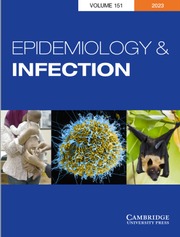No CrossRef data available.
Article contents
Studies on immunization by a species antigen: III. The presence of an anti-immunity factor in Pneumococcus
Published online by Cambridge University Press: 15 May 2009
Extract
The bodies of pneumococci contain a constituent of protein origin which interferes with immunization.
This constituent can not only counteract the immunizing action of the species antigen, but reduce the immunity response to the type-specific antigen.
In heat-killed pneumococci (ordinary bacterial vaccine) the coagulation of the protein renders the anti-immunity factor relatively insoluble and minimizes its action.
In solutions of pneumococci the anti-immunity factor is liberated and reduces the immunity response to the type-specific antigen.
The immunizing effect of a small dose of heat-killed pneumococci can be abolished if the cocci be dissolved before injection. But a larger dose of dissolved vaccine produces immunity, the effect of the antigen predominating.
The anti-immunity factor is heat resistant at acid pH, but is destroyed by alkaline heat. In these respects it resembles the immunizing antigens.
Information
- Type
- Research Article
- Information
- Copyright
- Copyright © Cambridge University Press 1945

